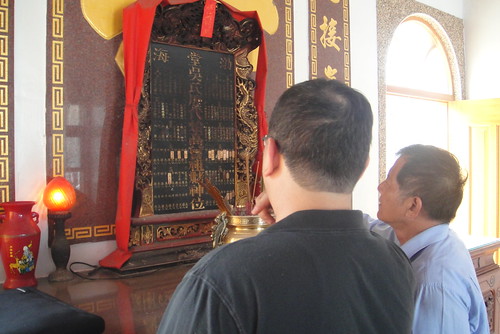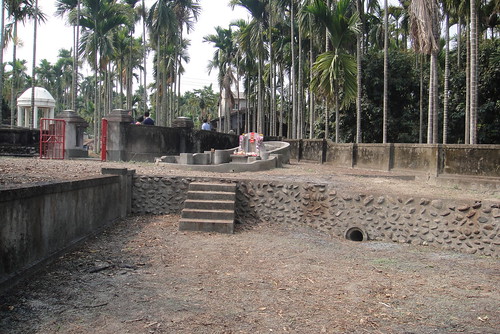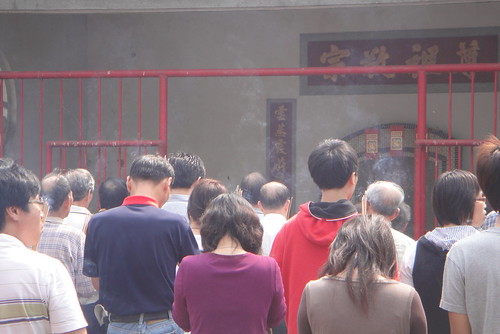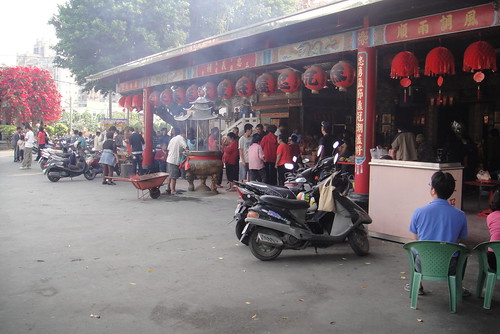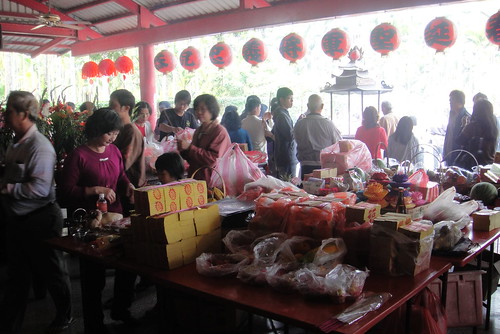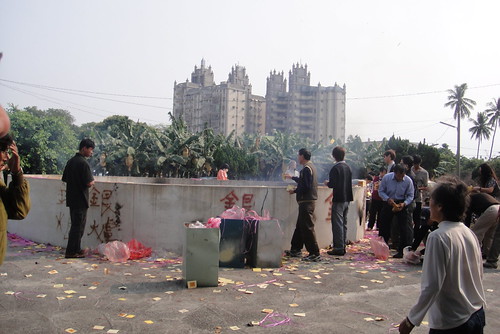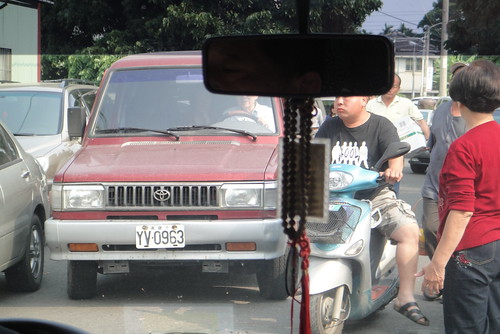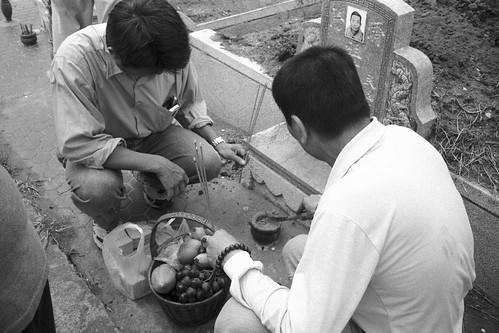 The issue of ancestor worship is complex. It would be impossible to express exactly what it is and what it means to the Taiwanese. Each year I’m here I understand a little more. And, now that I’ve married into a Taiwanese family–as a daughter-in-law to the first born son–I understand even more.
The issue of ancestor worship is complex. It would be impossible to express exactly what it is and what it means to the Taiwanese. Each year I’m here I understand a little more. And, now that I’ve married into a Taiwanese family–as a daughter-in-law to the first born son–I understand even more.And, still words fail to truly express all that is embodied in ancestor worship. It is more than simply worship.
Worship of the ancestors and showing filial piety is of utmost importance to the Taiwanese.
The worship of ancestors is probably the most difficult aspect of conversion to Christianity for new Taiwanese Christ-followers. Giving up idol worship and temple worship is much easier than giving up ancestor worship.
Why?
Here are my thoughts on the matter:
(1) When a young believer (18-35 yrs old) tells his parents he is Christian, his parents hear “I don’t love you, and I am ungrateful for the fact that you have given me life and provided for me all these years. I don’t care what happens to you after you die–rot in hell for all I care!”
(2) Ancestor worship is corporate worship. It is almost never done alone. The family gathers, two or three pass out incense and the worship commences. If you refuse to participate, it appears that you are ungrateful, disrespectful and have no manners. It’s almost as if you are spitting in the face of those who gave you life. So, the pressure–not peer, but rather familial–is STRONG, VERY STRONG.
(3) The social function of ancestor worship is more than just “worship.” The coming together to clean a family tomb and pay respects is a form of family reunion. To be expelled from participating in qing ming jie is perhaps the most severe punishment that could be given in traditional society–it means that you are no longer seen as part of this family.
This venerable cultus, the worship of ancestors, in indeed the most stubborn obstacle Christianity has to face. It is so ingrained in the nature, and appeals touchingly to the heart, that it requires the strongest conviction and the finest moral courage to beak its thralldom and brave the scorn of friends and relatives, to whom neglect of one’s ancestors in the spirit world is the most inhuman and cruelest of crimes. (Far from Formosa, emphasis mine)
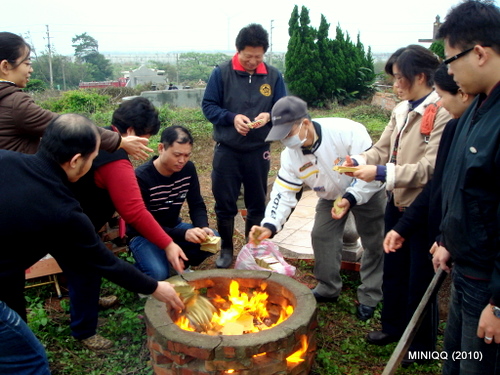 In 1925, the author of an article entitled “Chinese Ancestor Worship: A Study of Its Meaning and Its Relations with Christianity” concluded that “the problem [of ancestor worship] will ultimately be solved by the Chinese themselves. Only those who have grown up within a system in which ancestor worship is central can wisely make provision for its future evolution and sublimation. Ancestor worship still awaits treatment at the hands of those who are both truly Chinese and truly Christian. In their hands we may safely leave its destiny.”
In 1925, the author of an article entitled “Chinese Ancestor Worship: A Study of Its Meaning and Its Relations with Christianity” concluded that “the problem [of ancestor worship] will ultimately be solved by the Chinese themselves. Only those who have grown up within a system in which ancestor worship is central can wisely make provision for its future evolution and sublimation. Ancestor worship still awaits treatment at the hands of those who are both truly Chinese and truly Christian. In their hands we may safely leave its destiny.”One Christian family I know, uses a scroll to maintain the family tree instead of using ancestral tablets. The names are still kept, family history still proudly displayed and the deceased still remembered. We know lineage and family history is important to God–why else would there be so many lists of who begot who in Scripture if it were not?
Another family held a graveside worship service the year after their mother/grandmother had passed away on qing ming jie. They read Scripture, prayed to the Most High God, sang praises to him, and told stories of remembrance.
I think these are great alternatives . . . the advantage these two families have is that they are not alone. They are families of believers. The first one was a first generation believer, but he is the oldest son and now the head of the household, and his wife and children are also believers. The second one is a several generation Christian family (what a blessing!).
So, for those that are first generation believers, the only one in their family, the challenge to show respect to those who have gone before them and yet also want to make a stand for their faith is huge. One alternative for first generation believers who are also the first believers in their families is to attend the ceremonies, but not participate.
This is what Lawrance and I did. We did not hold incense, we didn’t join the group in their prayers and bows, and we burned no paper money. After they had finished their corporate worship and had gone to line up to place incense before the gods who protected the tombs, Lawrance placed flowers inside the structure at the tomb area.
Lawrance has been a believer for 11 years now, so his parents have had time to grieve and accept the fact that he will not worship them after they’ve passed on. Even so, Lawrance still has to stand up to the pressure from aunts and uncles to join in the worship.
My point in this very long winded post is actually quite simple. Your Taiwanese brothers and sisters in Christ need your prayers.Would you please intercede on their behalf? Would you pray for them to have “the strongest conviction and the finest moral courage to beak its thralldom and brave the scorn of friends and relatives”? Ask the Most High God to give them wisdom and courage to say and do the things that are pleasing to Him.
